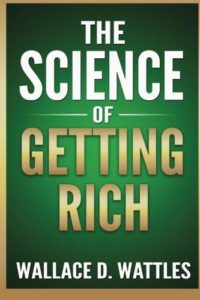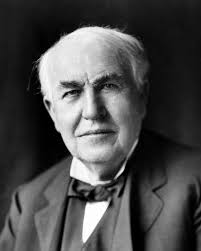It’s NOT Okay to Fail … It’s Mandatory!
I don’t know about you, but a major problem for me has been that I’ve always (or at least for a very long time) been scared to fail at things. I didn’t realise it at the time, of course, it’s only much more recently that it’s become clear to me that it was the cause of a lot of problems for me. But that’s the truth; I was scared to fail and that fear held me back and stopped me doing things I wanted to do. I was scared to fail, so the easy way out was not to try.
I suppose part of the problem was that I was just naturally good at a lot of things. They came easy to me. Because of that it was expected I’d be good at everything. Or at least that’s what I thought. I don’t suppose anybody cared much one way or the other whether I succeeded at a particular thing, but for me it gradually became an issue (even though I was unaware of it). Because I’d been able to ‘perform’ at a certain level it had become the norm, and any time I started something, or was about to, I’d subconsciously hold back in case I screwed up.
The result was that I didn’t do certain things, and I didn’t go down certain paths, and all because of a faulty belief that I had. I was literally scared to start sometimes … and unaware that it was because I was afraid I wouldn’t make the grade. It’s only in recent years that I’ve become acutely aware of some people being successful at things when I know that, in other ways, they are quite limited in their abilities. It makes sense to me now, but for a long time it had me wondering. How could it be that a person, someone who I knew could barely string a coherent sentence together, could be so successful in some particular field? It mystified me.
Success isn’t necessarily linked to intelligence
 It makes sense now, because I realise that success has virtually nothing to do with superior intelligence, or any of the other variables that you might think would have an impact on success in a particular field. I think one of the things that highlighted this for me was reading The Science of Getting Rich.
It makes sense now, because I realise that success has virtually nothing to do with superior intelligence, or any of the other variables that you might think would have an impact on success in a particular field. I think one of the things that highlighted this for me was reading The Science of Getting Rich.
In it, the author states categorically that success is not dependent on intelligence, or location, or social standing, or wealth, or any of several other variables. And, more importantly, he proves it. Applying a little logic to the question, he points out that people of very high intelligence and people of average intelligence are successful in a certain business. He also points out that people with scant education and those with a very high level of education are successful. And he applies the same logic to other variables, showing beyond any doubt that success is not dependent on any of these things.
I remember being impressed by this; and a bit embarrassed too, since it should have been very obvious to me already, since I have a very high IQ. I shouldn’t have needed to have this pointed out to me! But there you are, it shows that a high IQ isn’t any great indication of common sense. In some ways, I freely admit, I’m not very bright!
It’s a relief to me now, having realised this. I’m more prepared to fail now that I know success isn’t closely related to intelligence. I mean, it makes sense now that it’s okay to try certain things and if I fail, that’s okay, it doesn’t mean I’m not as intelligent as I thought, it just means something didn’t go to plan. Oh well, just take a deep breath and try again. Nothing lost!
Edison knew it was okay to fail
 I can see how this knowledge is liberating, and I welcome it. I know that the more you fail, the closer you get to success. Each attempt brings you one step closer, and each ‘failure’ is just a stepping stone on the way.
I can see how this knowledge is liberating, and I welcome it. I know that the more you fail, the closer you get to success. Each attempt brings you one step closer, and each ‘failure’ is just a stepping stone on the way.
Edison was undoubtedly one of the most inventive of people, but he was just an ordinary man in many ways. He probably wasn’t much different to anyone else. His IQ was quite possibly nothing exceptional. But he was different from most other people in at least a couple of important ways – he knew it was important to keep trying, no matter how many times you failed … and he knew the value of gathering together a group of like-minded people to help crack a problem.
His workshop (or ‘Invention Factory’ as he called it), in Menlo Park, was the first real research and development facility, where all the most inventive people were grouped together, and where it was normal to keep testing and trying, and failing, in the quest for new products and inventions.
He didn’t expect his ‘inventors’ to keep coming up with amazing new products all the time. He just expected them to keep trying new things, experimenting, finding what worked and what didn’t. That way lies success. And, in his case, it meant that he ended up with well over a thousand US patents (well over 2,000 worldwide), so he was definitely onto something.

Sorry ... MEMBERS ONLY!
UNLOCK FOR FULL EXERCESS!EXERCESS is an online community of people who want to seriously improve their health and fitness, both mental and physical.
JOIN FREE TODAY!
… and get complete and unfettered access to an absolute goldmine of valuable information.
Already a member? Sign in!
